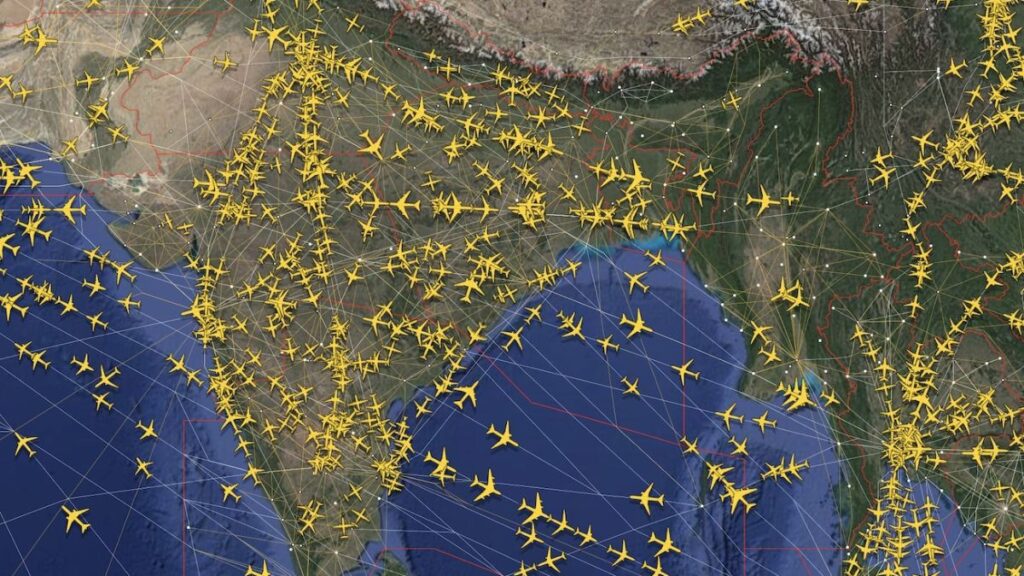International Flights May Cost More With Longer Flight Durations As Pakistan Closes its Airspace to Indian Carriers

Pakistan airspace closure affects Indian airlines - Image for representation
GURUGRAM, April 24, 2025 — Travelers flying west from India should brace for longer journeys and potentially higher airfares as Indian carriers including Air India, IndiGo, and SpiceJet reroute international flights following Pakistan’s decision to close its airspace to Indian airlines.
The closure, effective immediately, affects west-bound routes from northern India, especially from Delhi’s Indira Gandhi International Airport (DEL). Indian carriers are now forced to take longer detours via Gujarat or Maharashtra, adding up to 90 minutes in some cases and leading to increased fuel consumption and logistical challenges.
Airlines Issue Alerts, Cancel Flights
IndiGo, India’s largest airline, has already begun issuing travel advisories. Flights from Delhi to Baku and Tbilisi on Thursday evening experienced extended flight times of about 90 minutes, and the Delhi-Almaty service was outright canceled. Meanwhile, flights on routes to Europe, Central Asia, West Asia, the UK, and North America are witnessing average delays of 70–80 minutes.
Air India, which operates India’s only ultra-long-haul flights to Europe and North America, confirmed:
“Due to the announced restriction of Pakistan airspace for all Indian airlines, it is expected that some Air India flights to or from North America, UK, Europe, and the Middle East will take alternative extended routes.”
Both Air India and IndiGo expressed regret for the inconvenience caused and reassured passengers of their commitment to safety and support for flexible travel rebooking options.
Financial Fallout Looms
Although airlines have yet to officially disclose losses, industry observers predict that operational costs will rise significantly. The last comparable closure in 2019, after the Balakot airstrikes, resulted in combined losses of ₹700 crore due to extended routes and refueling requirements.
Foreign airlines that retain the right to overfly Pakistani airspace may gain a competitive edge by offering shorter, more cost-effective routes, further pressuring Indian carriers.
Widespread Impact Across Airlines
The closure affects multiple Indian airlines with west-bound international operations:
- Air India: Routes to Europe, North America, and West Asia
- IndiGo: Routes to Turkey, Central Asia, and the Caucasus
- Air India Express, Akasa Air, SpiceJet: Primarily to West Asian destinations
Flights from key northern airports, especially Delhi, are now required to divert around Pakistan’s airspace, disrupting scheduling and resource allocation. Some flights may require additional fuel stops, as seen in 2019, when Air India’s Delhi-Chicago flights stopped in Europe and IndiGo’s Delhi-Istanbul flights stopped in Doha.
Political Backdrop
Pakistan’s decision follows a high-level meeting chaired by Prime Minister Shehbaz Sharif. The move is reportedly a response to India suspending the Indus Water Treaty and downgrading diplomatic ties after the recent Pahalgam terror attack.
Looking Ahead
Airlines are expected to engage in strategic recalibration involving fuel planning, crew scheduling, and aircraft redeployment to sustain service levels. As the situation evolves, passengers are advised to stay updated through official airline channels for real-time notifications and travel options.
Stay with us for the latest aviation updates and developments.







